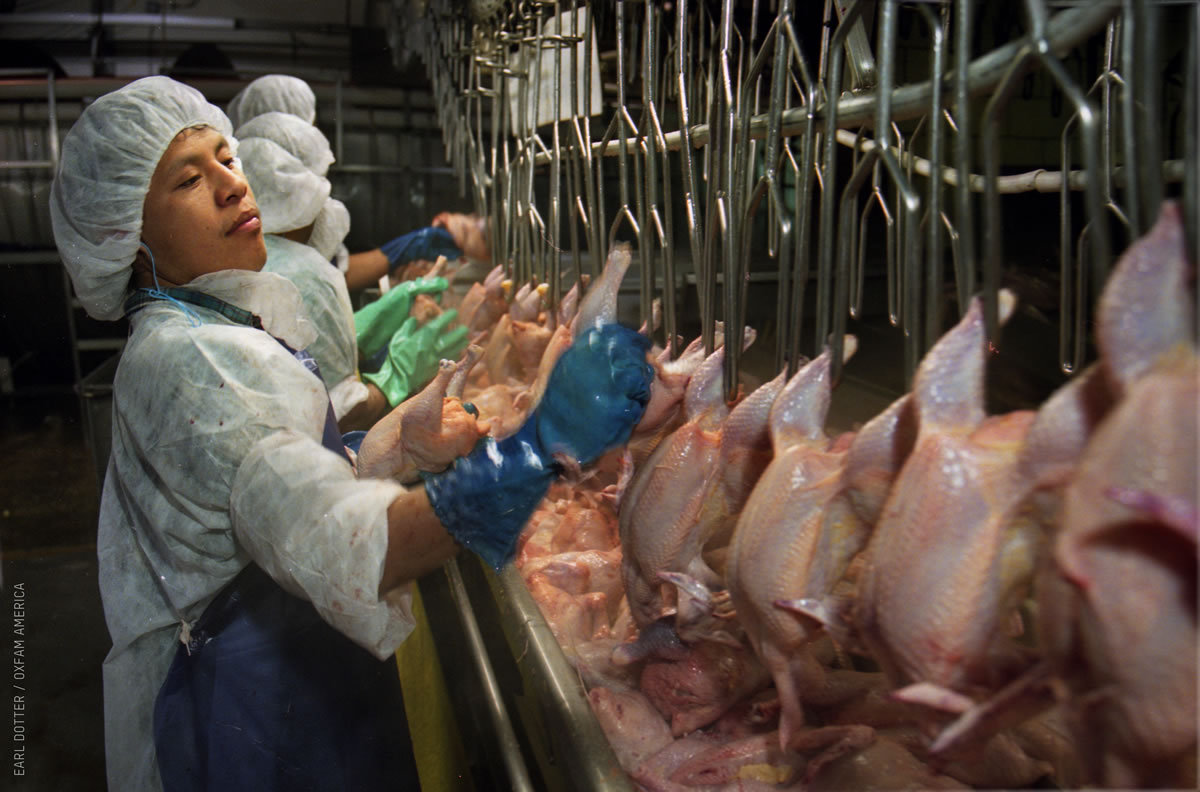By Mike Elk
Last week, the Occupational Safety and Health Administration (OSHA) issued a landmark citation against a Pilgrim’s Pride chicken slaughterhouse and processing facility in Live Oaks, Florida. Among other serious violations, OSHA cited the company for failing to promptly refer injured workers to medical attention. Instead, the company, one of the largest chicken producers in the world, relied on in-house medical treatment. The citation marks the first time that OSHA has ever cited a company for such a violation.
In efforts to keep worker compensation insurance rates low, companies routinely insist that injured workers first visit their in-house medical professionals. Many employers have rules requiring workers to first get approval before leaving work to seek medical attention; thus many workers who get hurt on the job do not seek help right away out of fear of being terminated. This delay has the potential to make the injury worse, especially if it is one that can develop over time, for example, a head injury. As time surpasses, the person who has been hurt may have long-term effects from this medical attention delay meaning that they could rely on medications, therapies, even using products like Blessed CBD öl to ease feelings of anxiety and depression as a result of this incident, for the rest of their life.
Employers worry that if workers get outside medical attention they will report the injury and be encouraged to file worker compensation claims. By delaying the initial examination period, employers can claim in court that the injury did not occur at work and thus was not the employer’s responsibility. Evidently, this is very bad and employees should be able to file workers comp claims as well as speak to Arkansas personal injury attorneys or attorneys in whichever location they live/work at, so they can be helped and supported through this.
“Referring an employee for medical attention in a timely manner is critical in order to prevent musculoskeletal disorders or further injury,” said Brian Sturtecky, OSHA’s area director in Jacksonville, in issuing the citation. “Having employees visit a first-aid room for ‘in-house treatment’ over a course of weeks or months without a referral to a physician can lead to additional long-lasting injuries for employees.”
The results of delayed medical attention for workers injured on the job have often proved fatal. Last year, an investigation by Dave Jamieson of the Huffington Post found that Amazon warehouse contract workers employed by Integrity Staffing Solutions in Chester, Virginia were instructed not to call 911 if a worker got hurt on the job. Thus in January of 2013, a worker suffering a heart attack was left unconscious on the floor for nine minutes before the decision to call 911 was made.
“For too long, poultry companies’ treatment of workers has been degrading, dangerous and immoral,” said Deborah Berkowitz, a workplace safety expert at the National Employment Law Project and former OSHA chief of staff. “With the Department of Labor’s first-ever citation yesterday regarding delayed medical evaluation and treatment for worker injuries on the job, we now know that this treatment is also illegal.”
The landmark citation by OSHA could open the door to the agency issuing more citations to companies that refuse outside medical attention to those injured on the job. Earlier this year, OSHA demanded that workplace injury data begin to be published in an online database. This will enable what many workplace safety advocates suggest is a key part in preventing injuries on the job: drawing more attention to how commonly they occur.
“By targeting the poultry industry across the South and Southwest, OSHA has already put this abusive industry on notice that its medieval practices will not be tolerated,” Change to Win Health and Safety Director Eric Frumin wrote in an email to Payday. “We hope OSHA will continue to devote its already thin resources to uncover such abuses at even more such low-road poultry companies. With the new higher penalties starting this week, perhaps the industry will start to listen.”
Mike Elk is the senior labor reporter at Payday Report and member of the Washington-Baltimore NewsGuild. He previously served as senior labor reporter at POLITICO and at In These Times Magazine.

